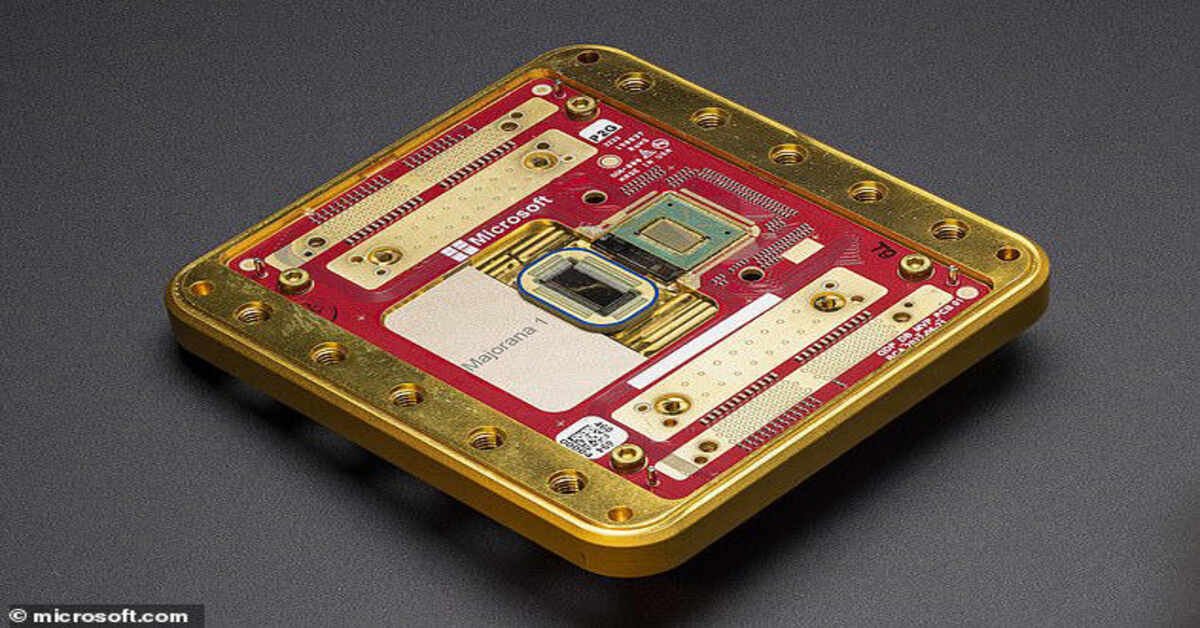In a groundbreaking move, Microsoft has unveiled a revolutionary chip called Majorana 1, marking a significant leap toward the development of ultra-powerful quantum computers. With the potential to solve complex industrial and scientific challenges in years rather than decades, this breakthrough could redefine computing as we know it.
The Science Behind Majorana 1
Unlike traditional computing, which relies on binary states (ones and zeros), quantum computing leverages the unique properties of atomic particles, measured in qubits. Majorana 1 is powered by a topological state, a new phase of matter that isn’t classified as a solid, liquid, or gas. Instead, it’s defined by its topological properties—how the material’s wavefunctions behave and connect across space.
Microsoft’s researchers achieved this state using an innovative topoconductor, a never-before-seen material made from indium arsenide and aluminum. This material produces the fundamental units of quantum information, paving the way for a new era of quantum computing.
Why Majorana 1 Matters
Quantum computing has long been touted as the future of technology, but scaling up has proven difficult. Today’s quantum computers operate on a very small scale and lack the power to solve truly large-scale problems. Majorana 1 could change that.
- More Reliable Qubits: The chip generates qubits that are more stable and scalable than existing quantum systems.
- Potential for a Million-Qubit System: Microsoft claims this technology could eventually scale up to a million qubits, enabling unprecedented computational power.
- Real-World Applications: With this kind of processing ability, quantum computers could tackle challenges like combating pollution, discovering life-saving medications, and even developing self-healing materials for construction and healthcare.
How Quantum Computing Could Change the World
Microsoft believes that quantum computing will soon be capable of solving problems that even the most advanced supercomputers cannot. Some possible applications include:
- Environmental Solutions: Breaking down microplastics into harmless byproducts to combat pollution.
- Medical Breakthroughs: Simulating complex molecules to speed up drug discovery.
- Advanced AI Development: Accelerating machine learning and artificial intelligence capabilities.
- Security and Encryption: Creating unbreakable encryption methods to protect sensitive data.
The Quantum Race: Microsoft vs. Competitors
Microsoft isn’t the only tech giant making strides in quantum computing. Google and IBM are also pushing the boundaries:
- Google’s Willow Quantum Chip: Announced in December, it reportedly performed a calculation in five minutes that would take traditional computers thousands of years.
- IBM’s Quantum Advancements: IBM continues to develop some of the most advanced quantum systems available today.
With tech giants racing toward quantum supremacy, it’s clear that we are on the brink of a computing revolution. But will Microsoft’s Majorana 1 give them the edge? Only time will tell.
The Future of Quantum Computing
While the full-scale implementation of Majorana 1 is still years away, this breakthrough is a major step forward. Microsoft’s innovation brings us closer to a future where quantum computing can transform industries, solve global challenges, and unlock new technological possibilities.






